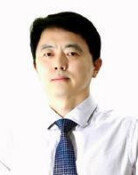PM Hatoyama: Japan Has Courage to Face Up to History
PM Hatoyama: Japan Has Courage to Face Up to History
Posted September. 25, 2009 07:34,
New Japanese Prime Minister Yukio Hatoyama told President Lee Myung-bak yesterday that Tokyo has the courage to face up to Japans past crimes against Asian nations.
Hatoyama said this in his first summit talks with President Lee in New York. In their 34-minute meeting, the two leaders shared a basic perception of the past history between the two countries and agreed to take united action on North Koreas nuclear problem.
○ Shared historical perception
The two first talked about a change in bilateral relations. President Lee said, Lets put our efforts into shaping new and close bilateral ties in which two countries trust each other.
Hatoyama responded by saying, Our new government led by the Democratic Party of Japan has the courage to face up to history. Id like to pursue constructive and future-oriented bilateral relations.
Japan and Korea are closely related to each other. Lets cooperate in dealing with not only issues involving the two countries but also the challenges facing Asia and the world.
Tokyos new policies toward Seoul are drawing attention since Hatoyamas comment on facing up to history apparently hints at his willingness to correct Japans past wrongdoings.
The Korean government said Japanese Emperor Akihitos visit to Korea will pave the way for a fundamental resolution of conflict between both countries. The visit will be all the more meaningful because next year marks the 100th anniversary of Japans annexation of Korea.
Reactions to the emperors visit to Korea are mixed in Japan. Some say Hatoyama will support the visit given his political and ideological inclinations, while others say conservative forces will deter it.
A Seoul official said, When the two leaders meets again, Hatoyama can present more advanced approaches that go beyond the 1995 Murayama statement, in which then Japanese Prime Minister Tomiichi Murayama issued an apology for Japans past aggression.
○ Cooperation on North Koreas nuclear program
Hatoyama was also aggressive on North Koreas nuclear program, saying, Though itll take time, lets strive to make the denuclearization of the Korean Peninsula lay the groundwork for a nuclear-free Asia and the world, adding, As a neighboring country, we cannot but feel threatened by North Koreas nuclear weapon and long-range missile development. We must prevent North Korea from developing such weapons.
Resolving the issue through dialogue is most desirable, but if necessary, international sanctions and pressure will be required.
To this, President Lee said, Japan has the right to speak up on denuclearization because it has no nuclear weapons despite its economic status, adding, North Korea is now offering conciliatory gestures to avoid international sanctions, but has shown no signs of abandoning its nuclear ambition.
President Lee also stressed unity among parties to the six-party nuclear talks, to which Hatoyama agreed.
I heard a bilateral contact between the United States and North Korea will take place soon. I hope such a bilateral meeting will lead to the resumption of the six-party talks, the Japanese leader said.
To this, President Lee said, I will not oppose a bilateral contact if it gets North Korea back to the six-party talks and helps its denuclearization.
The Lee-Hatoyama summit talks proceeded in a friendly atmosphere. At the end of the talks, President Lee mentioned the congratulatory speech by Hatoyamas wife at a festival for Korean-Japanese unity in Tokyo.
To this, Hatoyama said, I hear that my wife is more popular than I am in (South) Korea.
yongari@donga.com






